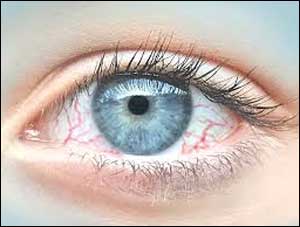- Home
- Editorial
- News
- Practice Guidelines
- Anesthesiology Guidelines
- Cancer Guidelines
- Cardiac Sciences Guidelines
- Critical Care Guidelines
- Dentistry Guidelines
- Dermatology Guidelines
- Diabetes and Endo Guidelines
- Diagnostics Guidelines
- ENT Guidelines
- Featured Practice Guidelines
- Gastroenterology Guidelines
- Geriatrics Guidelines
- Medicine Guidelines
- Nephrology Guidelines
- Neurosciences Guidelines
- Obs and Gynae Guidelines
- Ophthalmology Guidelines
- Orthopaedics Guidelines
- Paediatrics Guidelines
- Psychiatry Guidelines
- Pulmonology Guidelines
- Radiology Guidelines
- Surgery Guidelines
- Urology Guidelines
Infection linked with risk of developing Sjögren Syndrome, finds a study

A new study has revealed that exposure to infection may increase the risk of Sjögren Syndrome. Microbial immunogenic stimulation may trigger pathogenesis of this disease, the study has pointed out. The study was published in the Journal of Internal Medicine.
Sjögren Syndrome also called pSS is an auto-immune disorder that affects the moisture glands of the body, especially eye and mouth. The condition often accompanies other immune system disorders, such as rheumatoid arthritis and lupus. In Sjogren's syndrome, the mucous membranes and moisture-secreting glands of your eyes and mouth are usually affected first — resulting in decreased tears and saliva.
Read also: Vitamin D deficiency increases severity of autoimmune arthritis in Kids
It has been proven that environmental factors may play a crucial role in the pathogenesis of the rheumatic disease. In this light, Johannes Mofors et al investigated the link between microbial infection and Sjögren Syndrome.
The investigators extracted data from the National Patient Register to identify infections occurring before pSS diagnosis during a mean observational time of 16.0 years in 945 pSS patients in Sweden and 9048 matched controls from the general population. Data were analyzed using conditional logistic regression models. Sensitivity analyses were performed by varying exposure definition and adjusting for previous health care consumption.
Key findings of the study
- The investigators found that A history of infection associated with an increased risk of pSS.
- Infections were more prominently associated with the development of SSA/SSB autoantibody‐positive pSS.
- When stratifying the analysis by organ system infected, respiratory infections increased the risk of developing pSS, both in patients with or without autoantibodies.
- Skin and urogenital infections were significantly associated with the development of autoantibody‐positive pSS.
- A dose-response relationship was observed for infections and a risk to develop pSS with Ro/SSA and La/SSB antibodies.
- Gastrointestinal infections were not significantly associated with a risk of pSS.
The study concluded that infections are lnked with increased risk of developing pSS, most prominently SSA/SSB autoantibody‐positive disease. The data from the study suggests that microbial triggers of immunity may contribute pathogenesis of pSS.
Common symptoms of pSS include dryness of the eyes, eye irritation, decreased tear production, gritty sensation in the eye, eye infection, and serious abrasion of the dome of the eye and inflammation of salivary glands followed by mouth dryness, swallowing difficulties, dental decay, cavities, gum disease, mouth sores and swelling, hoarseness or impaired voice, abnormality of taste or loss of taste, dry cough
To find out more about the study click on the link.

Disclaimer: This site is primarily intended for healthcare professionals. Any content/information on this website does not replace the advice of medical and/or health professionals and should not be construed as medical/diagnostic advice/endorsement or prescription. Use of this site is subject to our terms of use, privacy policy, advertisement policy. © 2020 Minerva Medical Treatment Pvt Ltd